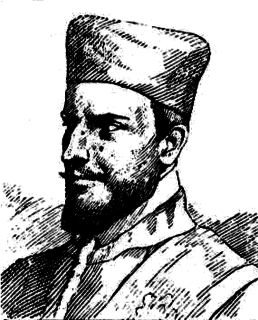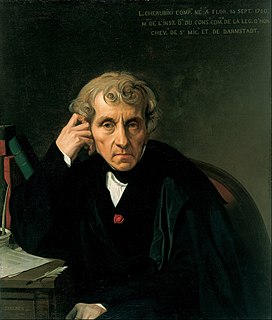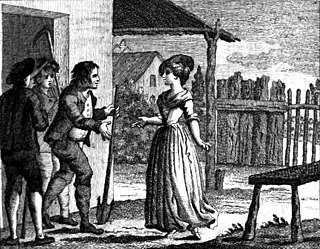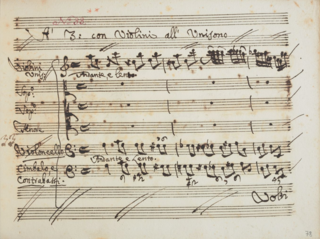
Alessandro Severo is an opera by George Frideric Handel composed in 1738. It is one of Handel's three pasticcio works, made up of the music and arias of his previous operas Giustino, Berenice and Arminio. Only the overture and recitatives were new. The impresario Johann Jacob Heidegger probably selected the 1717 libretto by Apostolo Zeno, originally written for Antonio Lotti and re-used by many composers thereafter.

Telemaco, ossia L'isola di Circe is an operatic dramma per musica in two acts by Christoph Willibald Gluck. The Italian libretto was written by Marco Coltellini after Carlo Sigismondo Capece's libretto for Scarlatti's 1718 opera Telemaco.

Pompeo Magno is an opera in three acts by Francesco Cavalli. It was designated as a dramma per musica. The Italian libretto was by Nicolò Minato.

Il Mitridate Eupatore is an opera seria in five acts by the Italian composer Alessandro Scarlatti with a libretto by Girolamo Frigimelica Roberti. It was first performed at the Teatro San Giovanni Grisostomo, Venice on 5 January, 1707. A failure at its premiere, Mitridate Eupatore is now considered one of the finest of Scarlatti's operas.

Tigrane, o vero L'egual impegno d'amore e di fede is an opera seria in three acts by the Italian composer Alessandro Scarlatti with a libretto by Domenico Lalli. It was first performed at the Teatro San Bartolomeo, Naples on 16 February 1715. It is regarded as one of Scarlatti's finest operas. As well as the serious main plot, there are also comic scenes involving the servants Dorilla and Orcone.

Hélène is a poème lyrique or opera in one act by composer Camille Saint-Saëns. It is the first opera for which Saint-Saëns wrote his own French libretto, which is based on the classic story of Helen of Troy and Paris from Greek mythology. The opera premiered at the Opéra de Monte-Carlo in Monaco on 18 February 1904. Moderately successful, the opera enjoyed a handful of revivals up through 1919, after which it fell out of the performance repertoire. The work was resurrected in 2008 for its world premiere recording by the Australian music label Melba.
Calliroe is a melodramma eroico or opera in 2 acts and 23 scenes by composer Giuseppe Farinelli. The work uses an Italian language libretto by Gaetano Rossi. The work premiered at La Fenice in Venice on 3 January 1808 in a double bill with the house premiere of Urbano Garzia's ballet Il calunniatore punito ossia Il conte Lenosse.
L'empio punito is an opera by composer Alessandro Melani. Notably the first opera written on the subject of Don Juan, the work uses an Italian language libretto by Giovanni Filippo Apolloni and Filippo Acciaiuoli. The opera was commissioned by Marie Mancini for performance during Carnival of 1669. The work premiered at the Teatro di Palazzo Colonna in the historic Borgo district of Rome on 17 February 1669.

L'Hôtellerie portugaise is an opéra comique in 1 act by composer Luigi Cherubini. The opera uses a French language libretto by Étienne Aignan. The work premiered on 25 July 1798 in Paris at the Théâtre Feydeau.

Demofoonte is a dramma per musica or opera in 3 acts by composer Christoph Willibald Gluck. The work uses an Italian language libretto by Pietro Metastasio. The opera premiered on 6 January 1743 at the Teatro Regio Ducal in Milan.
Lorenzo Filiasi was an Italian composer. His opera Manuel Menendez won the Sonzongo publisher's composition competition in 1904. This led to the work's premiere at the Teatro Lirico in Milan on 15 May 1904. Popularly received, the opera was mounted by opera houses throughout Italy, including the Teatro Costanzi in Rome and the Teatro di San Carlo in Naples in 1905. His opera Fior di Neve was given its premiere at La Scala on 1 April 1911 and his opera Mattutino d'Assisi premiered at the Teatro di San Carlo on 16 January 1941.

L'honestà negli amori is a dramma per musica in 3 acts by composer Alessandro Scarlatti. Written in 1679-1680 when Scarlatti was 19 years old, it was his second opera. The opera uses an Italian language libretto that was written by either D F Bernini or Domenico Filippo Contini. The work premiered at the Teatro di Palazzo Bernini in Rome on 3 February 1680. The opera was performed again in 1682 in Acquaviva delle Fonti at the Palazzo De Mari with Acquaviva laureata a serenata composed by Giovanni Cesare Netti.

Una follia is a farsa in one act by composer Gaetano Donizetti. The work premiered on 15 December 1818 at the Teatro San Luca in Venice. The opera uses the same Italian-language libretto by Bartolomeo Merelli after August von Kotzebue's Der Graf von Burgund that Donizetti used for his Enrico di Borgogna a month earlier, but with different music. It was given one performance and "never performed again, and its score has never been found."
Der Roland von Berlin is an opera in four acts by composer Ruggero Leoncavallo. The work uses a German-language libretto by Leoncavallo which is based on Willibald Alexis's 1840 historical novel of the same name. The opera premiered at the Berlin State Opera on 13 December 1904. Its premiere in Italy was given at the Teatro di San Carlo in Naples the following month where it was sung in Italian with the title Rolando.
Conchita is an opera in four acts and six scenes by composer Riccardo Zandonai. The work uses an Italian language libretto by Maurizio Vaucaire and Carlo Zangarini which is based on Pierre Louÿs's 1898 novel La Femme et le pantin. The work premièred in Milan at the Teatro dal Verme on 14 October 1911 with soprano Tarquinia Tarquini, who later married Zandonai in 1917, in the title role. Her portrayal was lauded by critics and she went on to perform Conchita at the Royal Opera, London (1912), the Cort Theatre in San Francisco (1912), the Philarmonic Auditorium in Hollywood (1912), the Heilig Theatre in Portland (1912), the Metropolitan Opera House in Philadelphia (1912), the Chicago Grand Opera Company (1913), the Metropolitan Opera in New York City (1913), and the Teatro di San Carlo in Naples (1913).

Il filosofo di campagna is a dramma giocoso per musica in 3 acts by composer Baldassare Galuppi. The opera uses an Italian language libretto by Carlo Goldoni. The work premiered at the Teatro San Samuele in Venice on 26 October 1754.

Ennio Porrino was an Italian composer and teacher. Amongst his compositions were orchestral works, an oratorio and several operas and ballets. His best known work is the symphonic poem Sardegna, a tribute to his native Sardinia, which premiered in Florence in 1933.

The Teatro Capranica is a theatre situated at 101 Piazza Capranica in the Colonna district of Rome. Originally constructed in 1679 by the Capranica family and housed in the early Renaissance Palazzo Capranica, it was the second public theatre to open in Rome. It was the site of many premieres of Baroque operas including Caldara's Tito e Berenice, Scarlatti's Griselda, and Vivaldi's Ercole su'l Termodonte. The Capranica ceased operating as a full-scale theatre and opera house in 1881 and in 1922 was converted into a cinema. Following the closure of the cinema in 2000, it has functioned on a hire basis as a conference and performance venue.

Carlo re d'Allemagna is a three-act dramma per musica by Italian composer Alessandro Scarlatti to a libretto by Giuseppe Papis, after Francesco Silvani, premiered at the Teatro San Bartolomeo of Naples on 26 or 30 January 1716. This is the composer's 79th opera out of 114 composed.













